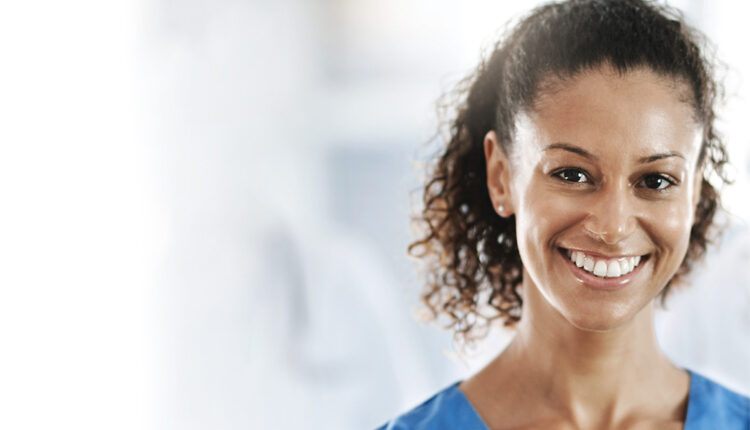 CECILIE_ARCURS / E+ / THINKSTOCK
CECILIE_ARCURS / E+ / THINKSTOCK
15th Annual Six Dental Hygienists You Want to Know
In the 15th edition of this annual feature, Dimensions of Dental Hygiene recognizes the best and the brightest in academia, clinical practice, industry, influencer, public health, and research.
We are excited to recognize these dental hygienists who have made a major difference within their areas of expertise—academia, clinical practice, industry, influencer, public health, and research. These visionaries have sculpted their own careers and significantly impacted the field of oral health.
Academia
Kandis V. Garland, RDH, MS
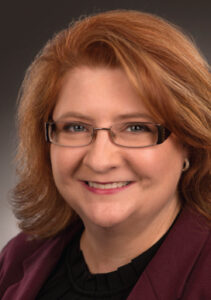 Kandis V. Garland, RDH, MS, has spent more than 22 years as a dental hygienist and educator. She began her career as a dental assistant and medical/dental insurance claims processor. Garland returned to school, earning a Bachelor of Science in Dental Hygiene from the University of Minnesota in 1998.
Kandis V. Garland, RDH, MS, has spent more than 22 years as a dental hygienist and educator. She began her career as a dental assistant and medical/dental insurance claims processor. Garland returned to school, earning a Bachelor of Science in Dental Hygiene from the University of Minnesota in 1998.
After working in clinical practice for 5 years, Garland decided to pursue her dream of becoming a dental hygiene educator. She began teaching at her alma mater while working on a master’s degree, eventually taking a full-time tenure-track teaching position at Idaho State University (ISU) in Pocatello.
While tragedy struck during her first year at ISU with the unexpected loss of her first husband, Garland was supported by her ISU colleagues who surrounded her with caring, compassion, and mentorship.
In 2020, she left ISU to try something new: radiology coordinator at Laramie County Community College in Cheyenne, Wyoming. While she enjoyed her students and the fast-paced, accelerated dental hygiene program, she missed the rigor of teaching in a university setting. In the summer of 2022, she began her current position as an associate professor at the Oregon Institute of Technology (OIT) in Klamath Falls. An expert in infection control, Garland is a prolific writer—don’t miss her latest article on the hepatitis C virus on page 38!
Q. How has mentorship shaped your career?
A. Kathleen J. Newell, RDH, MA, PhD—program director of the Division of Dental Hygiene at the University of Minnesota for 21 years—was a guiding force in my early career. She earned a doctoral degree in the 1980s when it was very uncommon for dental hygiene faculty to do so. She was my role model of what an academician should be and offered me my first adjunct faculty position. I am forever grateful for the experience to teach at my alma mater in a dental school.
Mentorship helped me greatly in my first full-time teaching position at ISU where I spent 14 years. I realize how lucky I am to have had such noteworthy faculty colleagues/mentors including JoAnn Gurenlian, RDH, MS, PhD, AFAAOM; Kathleen O. Hodges, RDH, MS, and the late Denise Bowen, RDH, MS. These mentors helped guide me in my research in infection control, my teaching and clinic coordination, and my overall professional development.
I have also had excellent mentors in my professional infection control-related roles. Leann Keefer, MSM, RDH, and Kim Laudenslager, RDH,MPA,CDIPC, have always welcomed me, and I call upon them often for guidance
Mentorship has been a huge asset in my career. I am thankful for the guidance and friendships I have made over the years. My goal is to continue mentoring students and colleagues in my new role at OIT and in our profession.
Q. What is your favorite aspect of working in higher education?
A. First and foremost, working with students. Playing a part in someone’s educational journey, creating lasting relationships, and developing the next generation of dental hygienists are my passions. Caring educators make a difference in students’ lives.
I enjoy the variety of teaching, research, and service. No two days are ever alike. Working in higher education provides the opportunity to keep learning and growing. Lifelong learning is so valuable to me. I strive to stay current with trends in dental hygiene, which brings relevant concepts into my teaching. As an educator, you are always learning.
Students see us primarily as educators, but research, scholarship, and service are just as important in higher education. Contributing to the literature moves our profession forward. Getting lost in searching the literature, writing, and publishing is gratifying to me.
Another aspect of higher education I enjoy is service. Whether that’s service to the department, university, or profession—giving back creates a well-rounded academician. Service to the institution helps advance the mission of educating students while creating opportunities for interprofessional collaboration. My current institution values that collaboration and collegiality. I’ve made so many meaningful professional relationships and friendships through service to my profession serving on state and national committees. Overall, I enjoy wearing many hats.
Q. What advice would you give dental hygienists who work in clinical practice but are interested in working in academia?
A. I would say absolutely go for it! Practicing dental hygienists have so much experience to offer. Students enjoy working with faculty who can offer real world advice that is relevant and current. Transitioning to academia is exciting and offers so much in the way of personal growth and learning. Taking on a new challenge can reignite your passion for dental hygiene in a different way. Finding a great mentor can help make the transition smoother.
Q. What changes have occurred in dental hygiene education over the past 20 years?
A. So many great changes have occurred including technology (classroom technology, clinical technology, electronic health records); expansion into interprofessional collaboration; advancement of our profession (direct access, restorative functions, access to care); medical/dental integration; and advocacy for our profession. Learning how to function in a pandemic was a real eye-opening experience for dental professionals and provided some valuable lessons. Overall, it is an exciting time to be a dental hygienist.
Clinical Practice
Kyle R. Isaacs, RDHEP, BHS
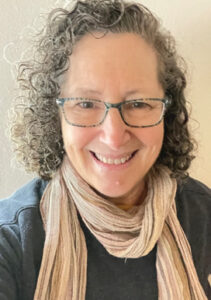 Kyle R. Isaacs, RDHEP, BHS, has dentistry in her blood with a dentist dad, dental hygienist mother, and dentist brother. After graduating from what used to be known as the Forsyth School for Dental Hygienists in Boston, she headed to California where dental hygienists could practice at the top of their license.
Kyle R. Isaacs, RDHEP, BHS, has dentistry in her blood with a dentist dad, dental hygienist mother, and dentist brother. After graduating from what used to be known as the Forsyth School for Dental Hygienists in Boston, she headed to California where dental hygienists could practice at the top of their license.
With a tightening job market, Isaacs moved to Oregon where she decided to become an expanded practice dental hygienist, which enabled her to see patients in a wide variety of settings.
Isaacs is a dental hygienist who wears many hats! She started her own mobile dental hygiene business, mostly seeing patients with dementia and intellectual and developmental disabilities as well as homebound patients. She works part-time for Benton County, Oregon, providing care to low-income patients. In addition, she helped write a proposal for a pilot project to bring preventive oral care to patients in facilities and is a published writer and speaker. An orofacial myofunctional therapist, Isaacs started her own business, MyO2 Breathe, to assist people on their journey to health.
In 2017, Isaacs received the Sunstar Award of Distinction and in 2018, she was honored with the American Dental Hygienists’ Association Hu-Friedy Master Clinician’s Award. She remains dedicated to mentoring and inspiring fellow dental hygienists.
Q. What do you love about clinical practice?
A. Creating and strengthening relationships and, ultimately, trust with patients are probably the most important aspects of clinical practice. Through gaining their trust, I help my patients feel more comfortable when they see me and ensure they will return for preventive dental hygiene services and any needed treatment with the dentist. This trust makes it easier to encourage and support good oral health practices.
It is so much fun to see the light bulb moments with my patients when I can empower them to take responsibility for their oral and overall health and when I can share new information to help them get and stay as healthy as possible.
I especially love providing care for patients with mental health issues, people with Alzheimer disease and other dementias, those who are homebound or residing in facilities, and patients with intellectual and developmental disabilities. I must say, I also love using my hands, so dental hygiene has been perfect for me these past 40 years.
Q. Out of all the hats you wear, which is your favorite?
A. As the owner of two small businesses (mobile dental hygiene and myofunctional therapy), I have experience with all facets of running a business. Direct patient care and connecting on an empathic level are my favorites. I have expanded my skill set to not feel burned out but also for that “just in case” I cannot do clinical dental hygiene anymore. Still, here I am 40 years later providing direct patient care. I feel extremely lucky as I hear of other clinicians early in their careers with physical issues affecting their ability to provide clinical care.
The past 9 years have been amazing! I started my two businesses and I also work for my home county providing care for low-income patients; administering assessments and applying sealants and fluoride varnish at one of our school-based health centers working alongside pediatricians; and educating community health workers on oral health. So, I love all of that and am so grateful that I live in a state where I can do all of this.
Q. What advice do you have for older dental hygienists who may be interested in trying something new?
A. You have life experience and a wealth of knowledge that can translate into myriad opportunities if you want them. Saying yes can open doors you never imagined. I learned this when I moved to a new state with no job in place, just the wisdom that I could make things happen. I volunteered in a variety of ways and made my opportunities. I continue to take courses and invest in myself.
You may think you are too old to start something new, but it will breathe new life into you and bring joy into what you do. Some of my proudest career moves came after the age of 50. I earned my bachelor’s degree at 52, started my mobile dental hygiene business at 53, had my first article published when I was 54, gave my first presentation when I was 55, and was 61 when I set up my myofunctional therapy business. If you are passionate about something, take that chance, you do not want to regret those opportunities you did not take. Because older dental hygienists tend to have more experience in the dental field, we are a wealth of knowledge and have the ability to mentor younger and newer dental hygienists. I wish that when I was a new hygienist, I had someone to mentor me.
Q. In your opinion, what are the key strategies that can improve access to dental care in this country?
A. We need to remove the barriers for dental hygienists to provide care for patients outside of a dental office and without a dentist present. As an expanded practice dental hygienist, I and others in my state have had the opportunity to do this for many years. Not only have we been able to help patients who are marginalized, but we also have been able to get many of them to dental offices for needed treatment. There are now many states with various levels of autonomy and scope of practice, some with more strict rules making it more difficult to reach patients not able to come into a dental office. Easing up on these restrictions will increase better health outcomes.
Also important is to have dental benefits for adults who are unable to pay for dental services, thus reducing the number of people who access the emergency department and also overall costs. Providing education for providers in trauma-informed care as well as the nuances of working with individuals who have intellectual and developmental disabilities will help alleviate biases toward these populations. The more we as providers understand these populations and how to care for them, the better they will be able to access compassionate dental care.
Industry
Beth Jordan, RDH, MS
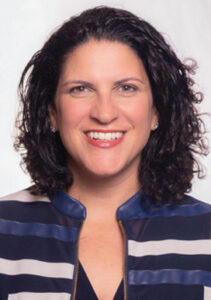 Beth Jordan, RDH, MS , is a graduate of the Dental Hygiene Program at Westbrook College, University of New England in Portland, Maine, where she worked as adjunct clinical faculty for nearly 10 years and now serves on the college’s advisory committee. She worked in private clinical practice until 2001 when she joined the Procter & Gamble Co (Crest Oral-B).
Beth Jordan, RDH, MS , is a graduate of the Dental Hygiene Program at Westbrook College, University of New England in Portland, Maine, where she worked as adjunct clinical faculty for nearly 10 years and now serves on the college’s advisory committee. She worked in private clinical practice until 2001 when she joined the Procter & Gamble Co (Crest Oral-B).
A member of the American Dental Hygienists’ Association, Jordan has served as a state delegate. In 2011, she was recognized in Maine as “RDH of the Year” honored as a “catalyst for professional development.” A contributor to the Darby and Walsh dental hygiene textbook, she has lectured to audiences of practicing dental professionals, students, and faculty.
Jordan has held several positions at Crest Oral-B and is a member of the Global Professional & Scientific Relations team where she contributes to scientific dissemination and passionately supports P&G’s commitment to oral health and prevention.
Q. How did you make the transition from clinical practice to industry?
A. Simple: Networking. Before I started dental hygiene school, I knew I would always seek learning and growing opportunities, though I wasn’t sure exactly what those opportunities would look like. First, upon graduation, I looked to my state hygiene association—an incredibly supportive group. Through networking, I purposefully sought out others who worked in industry, academia, and research to learn about their passions, roles, and their likes and dislikes.
In the beginning, I ventured into a variety of roles, I was open to learn in any capacity. All the while practicing clinically, I tried multiple environments such as working in a dental lab, correctional facility, adjunct clinical faculty, and sales. I realized that dental hygiene opens a lot of doors to follow your passion and make an impact—now even more than ever!
It was through one of these networking conversations that someone who I had a brief conversation with remembered my interest and called me to interview for Crest Oral-B. At the time of that call, I had literally just found an amazing practice to join, so it was a tough choice. At the time I remember thinking “I can always do clinical patient care, and stay on my current trajectory, I’ll never know if I don’t try for this new sales opportunity!”
Q. Why do you believe mentorship is important in dental hygiene and how do you model that in your own career?
A. “Turn and pull” is a phrase we use at Procter & Gamble to ensure that we keep our eyes open to the talent around us and “pull” them along with us to gain experience and exposure. Having worked for P&G for more than 20 years I have experienced both having and being a mentor as an important part of my learning journey. In addition, I have experienced both sides among the many dental professionals whom I have been lucky enough to cross paths with and either was mentored by or who I have mentored across the span of careers in the profession, including still today.
The experience you gain as a dental hygienist working in private practice is invaluable to patient care. Mentorship is important to the dental hygienist who desires to grow professionally, whether in the operatory directly caring for patients, or outside the office in another capacity. You can amplify your learning and explore opportunities by purposefully growing your network and seeking mentorship. You must put yourself in the places where you want to grow your experiences and expertise. As you network, you will find those that are willing to “turn and pull.”
In my experience if you show interest in learning, people want to help you grow. As a mentee, it is critical to reach out to engage with those you want to learn from, ask questions for guidance, and be open to evaluate a variety of points of view. It is critical to be willing to be vulnerable as you encounter uncomfortable growth opportunities. It is also important to know yourself as a participant in the process. I truly enjoy mentoring because can be both challenging and rewarding to invest time and know that both my mentee and I are changed in the process. It is personally enriching to be a trusted advisor and contribute to others’ success.
Q. What does your position as Global Professional & Scientific Relations/Dental Student Education Curriculum entail?
A. I am a voice of the dental professional to my work teams internally while representing our product technologies outside of P&G. I interact with researchers and marketers globally to bring scientific evidence, technology, and innovation to dental professionals to support the work clinicians do to transition or maintain their patients’ oral health. I am part of teams that drive publication strategy, dentalcare.com educational content, and marketing strategy in addition to supporting sales teams. I collaborate with global and national key opinion leaders to learn and share ideas. I also work with faculty and educators to support a preventive curriculum for their programs. I am always learning and being challenged in this unique position, and I am honored to represent the goals of oral health and prevention.
Q. What do you think the future holds for the profession of dental hygiene?
A. I see so many possibilities, especially for a driven professional. Advances in science, innovative products, technology, and equipment have evolved the ways that dental hygienists provide patient care. The variety of settings in which dental hygienists work to serve patients and scope of practice opportunities are growing and evolving. I think dental hygienists are at the forefront of preventive medicine, which is the future of healthcare, especially with the rise of self-care. I believe we can carve out a very satisfying and impactful career and I look forward to supporting the movers and shakers in dental hygiene and seeing what the future holds.
Influencer
Ann M. Bruhn, BSDH, MS
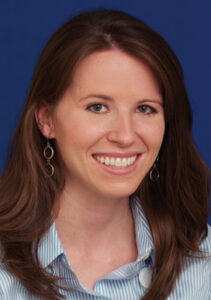 Ann M. Bruhn, BSDH, MS, is an associate professor and chair at the Gene W. Hirschfeld School of Dental Hygiene, Old Dominion University (ODU) in Norfolk, Virginia. An alumna of both the baccalaureate and master’s degree programs, she has been teaching at ODU for more than 11 years.
Ann M. Bruhn, BSDH, MS, is an associate professor and chair at the Gene W. Hirschfeld School of Dental Hygiene, Old Dominion University (ODU) in Norfolk, Virginia. An alumna of both the baccalaureate and master’s degree programs, she has been teaching at ODU for more than 11 years.
In 2018, Bruhn became chair of ODU’s School of Dental Hygiene. She influences dental hygiene through dissemination of her research at national and international levels for more than a decade. In addition to her teaching and administrative roles with ODU, Bruhn continues her research in safe and responsible patient care that bridges several domains including individuals with special needs, patients undergoing oral radiographic exposures, and post-mortem radiographic exposure for victim identification.
In 2017, Bruhn received the College of Health Sciences Outstanding Faculty Teaching Award, which recognizes excellent teaching clinically and didactically. In September 2022, she was recognized within the College of Health Sciences for her outstanding mentorship to staff, students, and faculty for going above and beyond her duties as chair to support and mentor anyone who seeks her guidance.
Bruhn recently presented at the International Symposium on Dental Hygiene and the International Dental Hygiene Educator’s Forum in Dublin, Ireland. She serves the profession at the national level as secretary for the American Dental Education Association, Council of Allied Dental Program Directors.
She also received funding from the Delta Dental of Virginia Foundation to develop and implement the first diversity capacity building initiative in the state for high school students interested in the dental field. The inaugural Dental Health Summer Institute took place July 18 to 22, 2022 with 31 underrepresented minority high school students. Faculty members from the ODU School of Dental Hygiene and university admissions and financial aid representatives spoke on topics such as college admissions and financial preparedness, dental terminology and theory, and the value of a diverse healthcare workforce. Plans are underway to continue the program in 2023.
Q. What motivates you to continue striving for excellence in your career?
A. Working in education within a university setting motivates me daily. I am fortunate to be surrounded by bright, motivated students, colleagues, and professionals who push me to do and be better as well as advocate for the dental hygiene profession.
Every role I have had within my time in clinical practice and academia—including treating patients; teaching and conducting research; serving on committees within the school, college, and university; and working in professional and community service and administration—has motivated me to strive for excellence and provided opportunities to learn and grow.
I have found motivation and strength from associations such as the American Dental Education Association, where I currently serve as board secretary to the Council of Allied Dental Program Directors.This service role has provided me with invaluable mentorship and learning experiences.
Q. What makes mentorship so important in the field of dental hygiene?
A. I have been fortunate to benefit from numerous mentors in my career, which began as soon as I was accepted into the Dental Hygiene Program at Old Dominion University (ODU) more than 18 years ago. My parents and professors during my time as a student mentored and motived me to apply for graduate school to obtain my master’s in dental hygiene at ODU, which led to teaching assistantships, and later a full-time faculty position at the institution and school I love. Mentors saw aspects of myself that I could not see as clearly along with underlying potential, which exemplifies the power and courage mentors provide to their mentees. Moving into a full-time tenure track faculty position proved the importance of continued mentorship as I obtained tenure at ODU and serve as chair of the ODU School of Dental Hygiene.
Currently, dental hygienists are in demand in numerous roles: clinician, researcher, education, public health, and industry. Mentorship is critical to moving our profession forward within all roles of the dental hygienist; however, mentorship is even more meaningful continued throughout various stages of a career in dental hygiene. Mentorship should not be a daunting task, but a natural process of genuine care for the success of others: a simple check-in as a mentor can go a long way. It is important to me to motivate and mentor other aspiring and promising dental hygienists and dental hygiene educators in the way that I have been able to receive and experience.
Q. What do you hope to accomplish with the diversity capacity building initiative?
A. Last year (2022), the ODU School of Dental Hygiene was able to partner with Delta Dental of Virginia Foundation to provide the inaugural “Dental Health Summer Institute,” to local high school students for the purpose of informing them of the dental hygiene profession, virtually meeting some of the School of Dental Hygiene faculty, and understanding the important process of applying to colleges and universities. Currently, men and minorities are underrepresented in the field of dental hygiene. Therefore, the planning team hopes the “Dental Health Summer Institute” will reach a diverse population and increase diversity among future applicants to ODU and the School of Dental Hygiene—many of whom are first-generation families with minimum to no experience with the process of applying to colleges/universities. We are thrilled to partner again and offer a hybrid program in 2023!
Q. Which issues facing the profession of dental hygiene do you believe are the most important to address?
A. I believe within clinical practice, access to dental hygiene care—relating to special patient populations including those with special needs and conditions and underserved populations—needs more attention. Dental hygienists are crucial to address these issues through advocacy, research, and dissemination of new knowledge in order to influence change. Within education, there is demand for more dental hygiene educators and administrators and mentorship can play a large role for our future educators!
Public Health
Alyssa Aberle, MBA, RDH
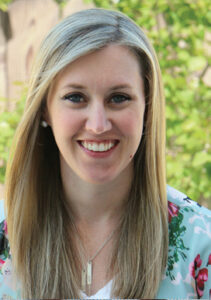 Alyssa Aberle, MBA, RDH, has spent her dental hygiene career working with several local nonprofit organizations including Kids In Need of Dentistry, Salud Family Health Centers, Colorado Orthodontic Foundation, and STRIDE Community Health Center. Through her work within these organizations, she decided to increase her knowledge of business operations and management to complement her clinical background. A 2009 graduate of the University of Colorado’s (CU) Dental Hygiene Program, Aberle earned a Master of Business Administration from the Leeds School of Business at CU Boulder in 2013.
Alyssa Aberle, MBA, RDH, has spent her dental hygiene career working with several local nonprofit organizations including Kids In Need of Dentistry, Salud Family Health Centers, Colorado Orthodontic Foundation, and STRIDE Community Health Center. Through her work within these organizations, she decided to increase her knowledge of business operations and management to complement her clinical background. A 2009 graduate of the University of Colorado’s (CU) Dental Hygiene Program, Aberle earned a Master of Business Administration from the Leeds School of Business at CU Boulder in 2013.
Over the past 11 years, Aberle has overseen a school-based dental program, worked in the medical/dental integration program, practiced clinical hygiene within the dental clinic setting, and served as an infection control coordinator.
Recently, she began working for a dental hygienist-owned mobile practice serving temporary housing shelters and substance use transitional housing and rehabilitation residences. In addition to her clinical role, Aberle works part-time for the Colorado Dental Hygienists’ Association as the executive director.
She has played a variety of roles in the professional association and is passionate about advocacy, advancing the profession of dental hygiene, and increasing access to preventive dental care for underserved communities.
Q. What advice would you give dental hygienists who are interested in public health?
A. As a dental hygiene student, I knew that I wanted to work in community and public health. I was eager to volunteer at community events and built excellent relationships with some local nonprofit organizations and our state public health department.
I would encourage dental hygienists who are interested in public health to reach out to local and state associations as well as nonprofit organizations to learn about volunteer opportunities.
Many organizations offer an abundance of ways for those interested in supporting their mission to help out. These volunteer opportunities are great ways to gain a deeper understanding of your community’s needs, the key organizations and stakeholders trying to create local oral health solutions, and potential gaps in services that you may be able to help address.
I would also encourage dental hygienists to become involved in their state dental hygiene association and the advocacy work happening at the state level.
Access to care is a legislative priority for many states and there is a great opportunity to expand the dental hygiene scope of practice and discover creative models to provide preventive care to communities.
Q. What do you see in the future of the dental hygiene profession?
A. I see dental hygienists really embracing our role as prevention specialists. I believe that dental hygienists are educated to be able to contribute so much to improve patient outcomes, both in the dental office as well as in other settings. We have a deep understanding of how prevention can set patients up to live longer and healthier lives and the role their oral health plays in their overall health. I hope that as our healthcare system shifts toward quality-based care and prevention-focused care, dental hygienists are at the forefront of this movement. Working at the top of their scope, dental hygienists can help bridge the gap between patients and other healthcare providers.
I also hope to see more dental hygienists pursue higher education and further their careers through advanced degrees in dental hygiene and other disciplines. Elevating the education level of our profession helps to build credibility in the dental industry, with our colleagues in other healthcare professions, and with the public. Achieving higher levels of education creates more well-rounded dental hygienists and advances our profession for generations to come.
Q. What does your work encompass as the Organization for Safety, Asepsis, and Prevention (OSAP) Project Lead in preventing nosocomial pneumonia?
A. OSAP recently joined with the United States Centers for Disease Control and Prevention to develop and disseminate a tool kit, including action steps and corresponding resources, on the importance of oral hygiene in hospital settings for the prevention of pneumonia. The workgroup is composed of dental hygienists with experience in multidisciplinary settings.
As the project lead, my role is to facilitate group discussions, organize the literature review, and lead the group in completing tasks assigned as part of the contract. The toolkit developed from this project will initiate interdisciplinary discussions, emphasize the importance of preventive oral health services in hospital settings, and highlight the role of oral health in overall health.
Q. What impact does the application of silver diamine fluoride and interim therapeutic restorations have on vulnerable populations?
A. For me, silver diamine fluoride has been a game changer and increases the options I can provide for my patients. There is finally a minimally invasive (and inexpensive) treatment option that can be applied by a dental hygienist (or dental assistant in some states) which can arrest AND prevent decay. Silver diamine fluoride has so many benefits for patients, especially patients who lack access to dental care.
Silver diamine fluoride can be the definitive treatment plan, or part of a larger restorative plan, depending on the needs and priorities of the patient. Silver diamine fluoride has literally saved hundreds of teeth for my patients in community health settings. However, sometimes we still need more than silver diamine fluoride to help restore function to teeth with large areas of decay. Interim therapeutic restorations (ITR), which dental hygienists are allowed to place in Colorado, provide us additional opportunities to address restorative needs in community-based settings. ITR are also known as the atraumatic restorative technique (ART) or silver-modified atraumatic restorative technique (SMART restorations) when combined with silver diamine fluoride.
By allowing dental hygienists to practice these expanded functions, we are able to address dental needs earlier and more cost-effectively, provide patients with culturally sensitive care in their own communities, facilitate referral relationships with dentists and other healthcare providers, and keep patients out of the emergency department. I am very proud to have played a part in the legislative process for bills to allow silver diamine fluoride application and ITR placement by dental hygienists in Colorado.
Research
Denise M. Claiborne, PhD, RDH
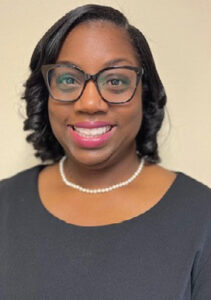 Denise M. Claiborne, PhD, RDH, is an assistant professor and graduate program director in the Gene W. Hirschfeld School of Dental Hygiene at Old Dominion University in Norfolk, Virginia, and has more than a decade of experience in both clinical practice and academia. Claiborne’s research expertise is in maternal and child oral health with a focus on oral health outcomes, oral health disparities, and oral health literacy among low-income children and caregivers. Some of her research studies include participants of the Special Supplemental Nutrition Program for Women, Infants, and Children, which utilized national level data to examine disparities in dental caries, toothaches, and preventive dental visits. Her emerging research led to the utilization of interprofessional education and collaboration among dental hygiene and allied health professionals to increase knowledge and practices in prenatal and pediatric oral health. Claiborne has received intramural and extramural grant funding to support her robust research program throughout the years. She is published in several top-tier peer-reviewed dental, dental hygiene, nursing, and interprofessional journals and has presented her research both nationally and internationally.
Denise M. Claiborne, PhD, RDH, is an assistant professor and graduate program director in the Gene W. Hirschfeld School of Dental Hygiene at Old Dominion University in Norfolk, Virginia, and has more than a decade of experience in both clinical practice and academia. Claiborne’s research expertise is in maternal and child oral health with a focus on oral health outcomes, oral health disparities, and oral health literacy among low-income children and caregivers. Some of her research studies include participants of the Special Supplemental Nutrition Program for Women, Infants, and Children, which utilized national level data to examine disparities in dental caries, toothaches, and preventive dental visits. Her emerging research led to the utilization of interprofessional education and collaboration among dental hygiene and allied health professionals to increase knowledge and practices in prenatal and pediatric oral health. Claiborne has received intramural and extramural grant funding to support her robust research program throughout the years. She is published in several top-tier peer-reviewed dental, dental hygiene, nursing, and interprofessional journals and has presented her research both nationally and internationally.
Q. What inspired you to earn a doctoral degree, and what was the process like?
A. I was inspired to earn a PhD by dental hygienists who pursued a similar route before me. I began pursuing my doctoral studies in 2013 when just 3% of dental hygiene faculty had earned a doctorate, according to the American Dental Education Association (ADEA). Based on a 2020 report, also by the ADEA, this number has increased to 4.7%. I hoped to inspire others to consider pursuing doctoral studies.
While I was working on my master’s degree, I also served as a graduate teaching assistant. Faculty members exposed me to various aspects of dental hygiene, including education and research. Toward the end of the master’s program, I started my first adjunct appointment teaching in a dental hygiene program at a community college. From there, I accepted a full-time appointment in a baccalaureate degree program. I knew that if I remained in academia, I would want to pursue a doctoral degree. So, I identified a program that would complement the degrees I had earned. After much research and communication with mentors, I pursued a Doctor of Philosophy in Health Services Research.
And oh, it was a process! I matriculated through the PhD program full-time while working full-time in a dental hygiene program. I did this for 3 years (no breaks) until I finished the program. The process had some challenges but was enjoyable. Overall, the PhD program enhanced my thought process and approach to research. In addition, it further developed my learning related to theoretical application and research and levering research to support policies that impact our profession and communities. Last, but most important, the program increased my curiosity, resilience, and perspective for how I intentionally show up and make a difference in the world.
Q. Which research study that you have conducted was the most memorable and why?
A. All the research studies I have conducted or been a part of have been memorable because I thoroughly enjoy collaboration and conducting research that will impact policies, communities, and professionals. However, the most memorable study is “Emergency Department Use for Non-Traumatic Dental Conditions among Children: NEDS 2014-2015.” This research study was interprofessional and interinstitutional. We were collaborators from four different institutions with diverse expertise in healthcare, public health, dentistry, and administration. However, our passion for oral health and improving outcomes is what connected us. We worked remotely on the project for about 1 year until we met in-person at a national conference to present the research. While our lives are busy, we keep in touch and have worked on additional projects together.
Q. What advice would you give dental hygienists who are interested in working in research?
A. Have patience, be kind to yourself, and be resilient, intentional, open, and collaborative. Additionally, identify your research passion—research topics grounded in theory and evidence, fill a knowledge gap in the literature that will continue to build the theory and science of dental hygiene.
Q. What do you see in the future of interprofessional collaboration for dental hygiene?
A. Interprofessional collaboration is an interpersonal skill required to meet the needs of patients and communities. As dental hygienists, we must continue to educate the public about oral and systemic health. I believe this will help individuals and stakeholders to understand the depth and breadth of our knowledge and scope of practice and the need for us to be at the “table” and in conversations that involve patient-centered care and communities. In addition, if the goal is to incorporate social determinants of health, diversity, inclusion, and equity in how we approach healthcare, an interprofessional approach with dental hygiene as part of the team is imperative.
From Dimensions of Dental Hygiene. February 2023; 21(2)14-17.

